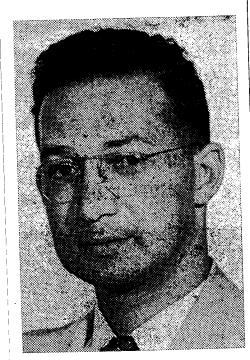
Published date
Extract:
'Benjamin Magson Kies Introduction Benjamin Magson Kies was an important South African political activist and theorist from about the middle of the 1930s until his death in 1979. His major contribution as an activist was to the development of the political strategy of non-collaboration with the structures and instruments of oppression and exploitation. This contribution was elaborated through the principles and work of the Anti-Coloured Affairs Department (Anti-CAD) Committee and the Non-European Unity Movement (NEUM) both of which he had an instrumental role in founding between 1943 and 1944.
As a theorist he was responsible, with life-long comrades, for the development and articulation of the theory and practice of non-racialism. The essential point of Non-racialism was that ‘race’ was an invention of the forces of hegemony and domination to secure the subjugation of people who were classified as ‘non-white’. Kies was born on the 12th December, 1917 to parents of modest means in the working-class community of Woodstock, Cape Town. His father, a factory worker, was active in the African Political Organisation (APO) where Mohammed Adhikari (1993:181) reports that he ‘had served for many years on the APO Executive’. Kies was a student at Trafalgar High School, the foremost school for students classified Coloured in Cape Town. After matriculating in 1934, he went to the University of Cape Town where he completed, with the assistance of a scholarship, the BA (1937), MA (1938) and BEd (1939) degrees.
After qualifying as a teacher Kies returned to Trafalgar High School where he taught until he was dismissed in 1956 because of his political activities. With a British Council scholarship in 1946 he proceeded on a study tour of Europe and a period of study at the University of London. Early Political Formation: The New Era Fellowship In 1937, Kies, then barely 20 years old, helped to establish the New Era Fellowship (NEF), an anti-colonial and leftist debating society. The NEF was the training-ground and incubator for the radical non-Stalinist socialist tradition that has come to be associated, principally, with the NEUM, later to become the New Unity Movement (NUM). The NEF was responsible for the establishment of a wide range of progressive and socialist and specifically anti-Stalinist social, cultural and political organisations to come out of Cape Town from 1937 onwards. Many of these organisations continue to exist today. Many individuals, some no longer explicitly politically affiliated have their political education in this broad tradition (Soudien, 2019).
The home base of the NEF was the Stakesby Lewis Hostel in District Six, Cape Town where it lay on a regular schedule of cultural activities, principally lectures and debates. To these events came a wide cross-section of Cape Town’s people. The lectures were given by the most progressive intellectuals and political figures in the city. The debates covered issues that were topical at the time, such as the role of intellectuals, the impending Second World War and, most critically, the question of ‘race’ in South Africa. Kies was involved in determining the agenda of the NEF from the beginning in 1937 when he would still have been a student at UCT at the time. '
for further details see the biographical piece by Crain Soudien https://www.sahistory.org.za/people/benjamin-magson-kies
Sonderling, N.E. (ed.) New Dictionary of South African Biography, v. 2. Pretoria: Vista.